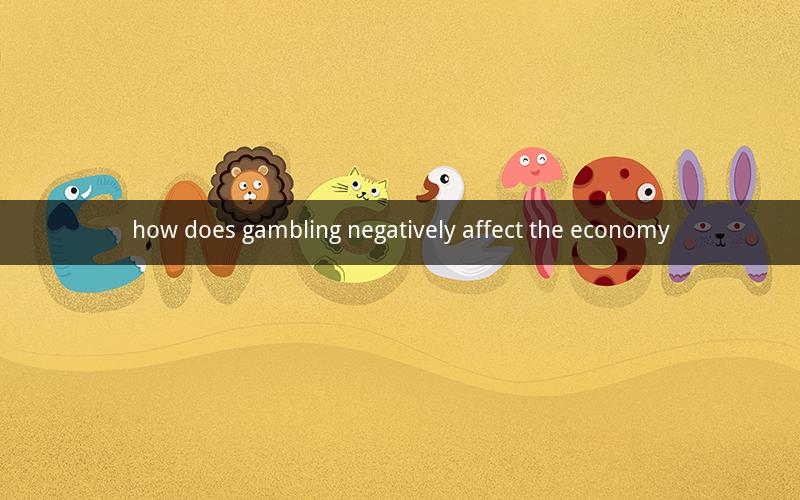
How Does Gambling Negatively Affect the Economy?
Table of Contents
1. Introduction to the Impact of Gambling on the Economy
2. Loss of Revenue in Other Industries
3. Increased Debt and Financial Instability
4. Social Costs and Welfare Impacts
5. Decline in Productivity and Economic Growth
6. Crime and Corruption
7. Impact on Youth and Society
8. The Role of Government Regulation
9. Conclusion
10. Questions and Answers
1. Introduction to the Impact of Gambling on the Economy
Gambling, often seen as a leisure activity, has the potential to significantly impact the economy. While it can bring in substantial revenue for governments and businesses, it also has several negative effects that can undermine economic stability and growth.
2. Loss of Revenue in Other Industries
One of the primary negative impacts of gambling on the economy is the loss of revenue in other industries. When individuals spend money on gambling, they are likely to cut back on spending in other areas, such as dining out, shopping, and entertainment. This reduction in consumer spending can lead to a decline in revenue for businesses in these sectors, ultimately affecting job creation and economic growth.
3. Increased Debt and Financial Instability
Gambling can lead to increased debt and financial instability. Individuals who become addicted to gambling may spend beyond their means, accumulating significant debt. This can lead to financial crises not only for the individuals but also for their families and communities. In extreme cases, it can even lead to bankruptcy, which can have a ripple effect on the economy.
4. Social Costs and Welfare Impacts
The social costs of gambling are considerable. Problem gambling can lead to increased rates of mental health issues, domestic violence, and other social problems. These issues can place a burden on social welfare systems, leading to higher costs for governments and taxpayers.
5. Decline in Productivity and Economic Growth
Gambling addiction can also lead to a decline in productivity. Individuals who are addicted to gambling may spend a significant amount of time and resources on their gambling activities, neglecting their work or other responsibilities. This can lead to a decrease in overall economic output and growth.
6. Crime and Corruption
Gambling can also contribute to crime and corruption. Illegal gambling operations often thrive in areas where legal gambling is restricted. These operations can be associated with organized crime, money laundering, and other illegal activities. Moreover, the lack of regulation in some gambling markets can lead to corruption among government officials and industry executives.
7. Impact on Youth and Society
The impact of gambling on youth is particularly concerning. Young people may be more susceptible to the allure of gambling due to their lack of experience and understanding of the risks involved. This can lead to addiction, financial difficulties, and other negative consequences that can have long-term effects on their lives and the economy.
8. The Role of Government Regulation
Government regulation plays a crucial role in mitigating the negative impacts of gambling on the economy. Effective regulation can help protect consumers, ensure fair play, and prevent illegal gambling operations. However, regulating the gambling industry is a complex task that requires a careful balance between allowing economic growth and minimizing harm.
9. Conclusion
While gambling can generate significant revenue for governments and businesses, it also has several negative impacts on the economy. The loss of revenue in other industries, increased debt and financial instability, social costs, decline in productivity, crime and corruption, and the impact on youth are just a few of the ways in which gambling can harm the economy. Effective government regulation is essential in managing these risks and ensuring that gambling remains a positive contributor to the economy.
Questions and Answers
1. What is the primary economic impact of gambling on other industries?
- The primary economic impact is a loss of revenue in other industries due to reduced consumer spending on non-gambling activities.
2. How does gambling addiction contribute to financial instability?
- Gambling addiction can lead to excessive debt accumulation, which can result in financial crises for individuals, families, and communities.
3. What are the social costs associated with gambling addiction?
- Social costs include increased rates of mental health issues, domestic violence, and other social problems that can burden welfare systems.
4. How does gambling affect productivity and economic growth?
- Gambling addiction can lead to a decline in productivity as individuals spend excessive time and resources on gambling, neglecting their work or other responsibilities.
5. What role does government regulation play in managing the negative impacts of gambling?
- Government regulation is essential in protecting consumers, ensuring fair play, and preventing illegal gambling operations, thus mitigating the negative impacts of gambling on the economy.
6. How can gambling contribute to crime and corruption?
- Illegal gambling operations can be associated with organized crime, money laundering, and other illegal activities, as well as corruption among government officials and industry executives.
7. Why is the impact of gambling on youth a concern?
- Youth may be more susceptible to the allure of gambling due to their lack of experience and understanding of the risks involved, leading to addiction and other negative consequences.
8. What are some potential solutions to reduce the negative impacts of gambling on the economy?
- Potential solutions include increasing government regulation, providing support for problem gamblers, and promoting responsible gambling practices.
9. How can individuals protect themselves from the negative impacts of gambling?
- Individuals can protect themselves by setting limits on their gambling activities, seeking help if they develop a gambling problem, and being aware of the risks associated with gambling.
10. What is the long-term economic impact of gambling on a country's economy?
- The long-term economic impact can vary, but it may include a decline in productivity, increased social costs, and a potential decrease in overall economic growth if the negative impacts are not effectively managed.